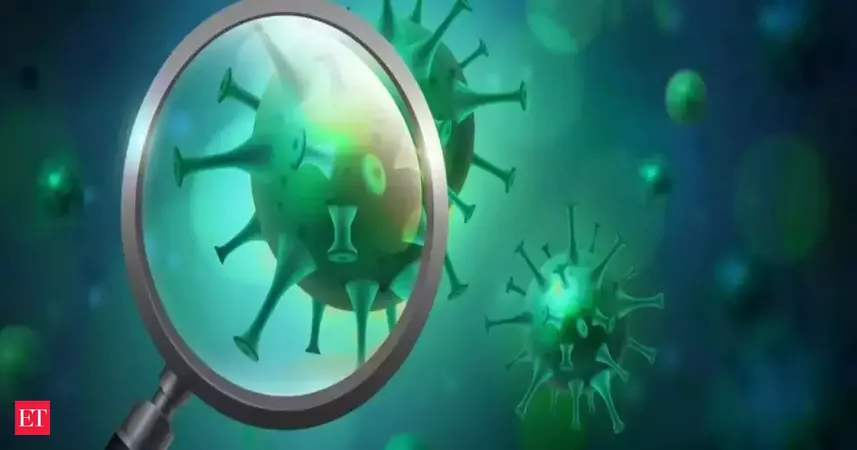
Unveiling the HMPV Virus in China: Do Antibiotics Hold Any Power Against It?
2025-01-06
Author: Amelia
Introduction
As China grapples with the challenges posed by the human metapneumovirus (HMPV), a question lingers in the air: Are antibiotics effective against this respiratory virus? Here’s what you need to know.
What is HMPV?
Human metapneumovirus is a viral infection that primarily affects the respiratory tract and is known to cause mild to severe respiratory illnesses, particularly in young children, elderly individuals, and those with weakened immune systems. Symptoms can closely resemble those of influenza and other respiratory viruses, including fever, cough, and wheezing.
Concerns and Misconceptions
The emergence of HMPV has raised concerns, especially as health authorities strive to contain its spread amidst ongoing challenges from other respiratory viruses like COVID-19 and seasonal flu. Current research indicates that antibiotics do not work against HMPV, as they are specifically designed to treat bacterial infections, not viral ones.
Antibiotics and Viral Infections
This misconception often leads to inappropriate treatments, which can worsen the situation by contributing to antibiotic resistance. Medical professionals emphasize the importance of distinguishing between bacterial and viral infections to ensure that patients receive the most effective care.
Public Health Recommendations
Public health organizations continue to monitor the situation closely, advising residents to maintain good hygiene practices, such as regular handwashing and wearing masks in crowded places, to help reduce transmission rates. Vaccination campaigns for other preventable respiratory infections remain crucial in protecting vulnerable populations.
Conclusion
Understanding and educating the public about the nature of HMPV and the ineffectiveness of antibiotics against it is vital in managing outbreaks and ensuring proper treatment pathways. In an age where viral infections are on the rise, awareness and informed decision-making are our best defenses.



 Brasil (PT)
Brasil (PT)
 Canada (EN)
Canada (EN)
 Chile (ES)
Chile (ES)
 Česko (CS)
Česko (CS)
 대한민국 (KO)
대한민국 (KO)
 España (ES)
España (ES)
 France (FR)
France (FR)
 Hong Kong (EN)
Hong Kong (EN)
 Italia (IT)
Italia (IT)
 日本 (JA)
日本 (JA)
 Magyarország (HU)
Magyarország (HU)
 Norge (NO)
Norge (NO)
 Polska (PL)
Polska (PL)
 Schweiz (DE)
Schweiz (DE)
 Singapore (EN)
Singapore (EN)
 Sverige (SV)
Sverige (SV)
 Suomi (FI)
Suomi (FI)
 Türkiye (TR)
Türkiye (TR)
 الإمارات العربية المتحدة (AR)
الإمارات العربية المتحدة (AR)